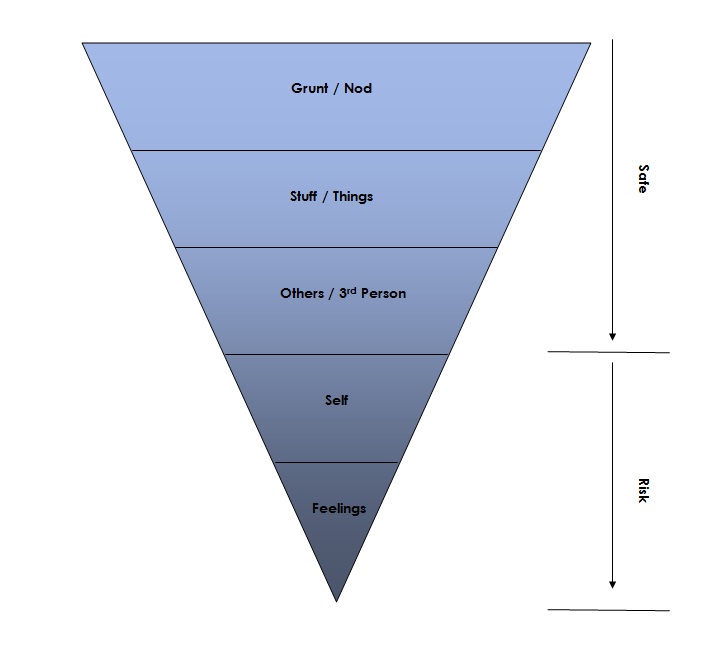Building relationships allows you to begin to create an organisational framework and, ultimately, your culture. In organisations where people don’t have reasonably strong, open, professional relationships, they’re much more reluctant to challenge poor behaviour.
When you create an empowered environment you often see a rapid change in attitude from, ‘This is just the job I do’ to ‘This is what I’m responsible for.’ When people have that deeper sense of responsibility they are prepared to go further to drive the culture.
Many of the organisations I have encountered have not recognised the link between strong professional relationships and high-level performance. In fact, I recently spoke with a general manager of a manufacturing firm, who quite blatantly said they if we were to embark on a program with his business, he didn’t care if his staff like one another, or had strong professional relationships. He just wanted a better bottom line. Interestingly, most of the issues impeding his organisation’s performance were all about relationships. For example, there was bullying in the workplace, there was back-stabbing, and there was buck-passing when it came to people accepting responsibility for their poor performance.
The question is, how do we build relationships with the people we work with?
Some organisations are reluctant to develop strong professional relationships because they are unsure how to go about it. They worry that ‘relationship-building’ falls into the new age namby-pamby basket, where people sit around the campfire, hold hands and sing songs together. Leading Teams sees relationship-building in a vastly different light. Most people typically allow relationships to evolve. In any team environment, however, this might mean relationships don’t evolve, evolve in a more destructive way, or only evolve in a superficial way that enables everyone to get by.

We use the ‘Relationship Pyramid’ model to show the various levels that a relationship can reach in a team setting. Often, people are stuck in the ‘grunt’ stage where they do little more than nod their heads at each other as they pass during the day. We start by trying to move them on to the ‘stuff’ stage, where they might finally build a relationship with someone to the point they can talk about the weather, for example. Then we guide them to the ‘others’ stage where they might talk about workmates in the other part of their organisation. Then there’s the ‘self’ stage where they feel comfortable disclosing information about themselves. The final stage is where they’ve built a professional relationship that is strong enough to enable them to talk about how they feel about work-related issues.
We don’t want to build relationships for the hell of it. Ultimately, relationships are built so that team members can talk with any member of the team about the business of the team. It’s also important to give people the opportunity to learn the skills that will enable them to have those conversations. People should feel comfortable saying to their boss, ‘We need you to back off and let us have control of some aspects of the business. You need to trust us.’
A manager or leader’s performance can also be enhanced by having strong professional relationships throughout the team. I have seen managers spend a disproportionate amount of their time managing the relationships between other staff members. This arises because a team member has a problem with a peer, but chooses not to resolves the problem because their relationship doesn’t have sufficient depth or strength. They then defer to the manager, taking him or her from their focus of developing the staff to manage their own relationships in a proactive manner.
P.S. If you would like to read more about strong professional relationships and other elements of our model, check out our book ‘Team Work’.
Ray founded Leading Teams in 1992 after working as a leadership officer with the Air Force. He has published two books, ‘Any Given Team’ and ‘Team Work’. Ray is based in Geelong.
Learn more about Ray.




